Russian ambassador: We'll stand by Serbia
Russia is not imposing any tactical solutions on Serbia when it comes to its UNGA Kosovo resolution, says Russian Ambassador Aleksandr Konuzin.
Thursday, 02.09.2010.
14:13

Russia is not imposing any tactical solutions on Serbia when it comes to its UNGA Kosovo resolution, says Russian Ambassador Aleksandr Konuzin. In an interview for Belgrade's Danas newspaper, the diplomat said that his country supported Serbia's efforts to protect her sovereignty and territorial integrity, "while it was up to Serbs themselves to decide how to proceed". Russian ambassador: We'll stand by Serbia "We will certainly stand by them," Konuzin said, asked about Moscow's position regarding any possible changes or withdrawal of the draft. At the same time, he said that Russian diplomats were ready to offer additional assistance to Serbia, should the country require it. Konuzin also warned about possible "unexpected shifts" concerning the Serbian resolution, and even during the debate in New York, expected to take place on September 9, "considering that delegations will not interrupt consultations directly even in the meeting hall". The daily's reporter asked the diplomat whether it was true that Moscow favored a more "hard-line" text of the draft, and whether Belgrade consulted Moscow. "Moscow and Belgrade, when it comes to the Kosovo issue, have permanent contact on various levels. There is complete mutual understanding. The Serb side independently formulated the text of the draft resolution. I don't see any particular rigidity in the text, which reflects the government's approach to the solving of the problem," said Konuzin. "During the days that will precede the debate on this issue at the General Assembly, I expect a more tense political battle between those in favor and against the partitioning of Serbia. The battle will be conducted in New York, and in capital cities," the diplomat was quoted as saying. "Unfortunately, one should not overlook the use of methods such as pressure and lobbying. The desire is that these 'diplomatic techniques' are not like the practice used frequently in the 20th century, that led to dramatic events." Konuzin also noted that scenarios that are "not reduced to merely the adoption of the resolution should not be ruled out", and that the General Assembly's rules of procedure "allow for such possibilities". Asked whether the ICJ's advisory opinion was burdening Serbia's attempt to return the Kosovo case from the legal to political arena, the diplomat said that "these things should not be conflicted". "True politics is that which leans on law. And there is international legal basis for the solution - it is UN Security Council Resolution 1244, the adoption of which ended the bombardment of Serbia." The Russian ambassador also said that negotiations between Belgrade and Pristina were not only possible, but necessary. "Such a thing requires political will that is missing in Pristina, which was from the very beginning encouraged to make unilateral moves. The agenda of negotiations should contain all issues that participants believe should be considered, until all existing problems have been solved. As for the format of the negotiations, there are plenty in that area," said he. The daily's reporter also asked the diplomat to comment on the "increased concentration of interest of Pristina (Kosovo Albanians) and the West on the north of Kosovo", inhabited mostly by Serbs, and a possible partition of Kosovo and Metohija. "Such increased 'interest' in the northern part of the province has the goal of spreading the unilaterally established regime from the south to the north. As far as Kosovo's partition is concerned, that question appeared many times in the past ten years in academic, expert and political circles." "International practice encountered cases of territorial divisions. I don't know if it has come to that here. Some believe that would be a worse outcome. But, it could also be the only one. I repeat: I don't know. In any case, this issue must be resolved in a peaceful manner only," said the Russian top envoy to Serbia. Asked what the ICJ ruling on Kosovo, which said that unilateral declarations of independence in themselves are not in violation of international law, meant for Abkhazia and South Ossetia, Konuzin said that the nature of the conflicts was different. "While Serbia consistently followed the path of peaceful, diplomatic resolution ever since UNSCR 1244 was adopted, Georgia acted in a different manner. Georgia systematically avoided adopting an agreement that would eliminate the use of force while solving the conflict." "After all, Tbilisi violated the UN Charter and UN Security Council decision, and existing international agreements, and sent its army against civilians. And when Georgia, after it was defeated, said it would not desist from solving the problem by using its army, it became obvious that separation was the only chance for the people of Ossetia and Abkhazia to survive," said Konuzin. Asked about Russia's office in Pristina, and its "contacts and cooperation with the institutions of the self-proclaimed Kosovo state", the diplomat said: "An office of the Russian embassy in Serbia is active in Pristina. It has no official contact with the Pristina authorities." Aleksandr Konuzin (Tanjug, file)
Russian ambassador: We'll stand by Serbia
"We will certainly stand by them," Konuzin said, asked about Moscow's position regarding any possible changes or withdrawal of the draft.At the same time, he said that Russian diplomats were ready to offer additional assistance to Serbia, should the country require it.
Konuzin also warned about possible "unexpected shifts" concerning the Serbian resolution, and even during the debate in New York, expected to take place on September 9, "considering that delegations will not interrupt consultations directly even in the meeting hall".
The daily's reporter asked the diplomat whether it was true that Moscow favored a more "hard-line" text of the draft, and whether Belgrade consulted Moscow.
"Moscow and Belgrade, when it comes to the Kosovo issue, have permanent contact on various levels. There is complete mutual understanding. The Serb side independently formulated the text of the draft resolution. I don't see any particular rigidity in the text, which reflects the government's approach to the solving of the problem," said Konuzin.
"During the days that will precede the debate on this issue at the General Assembly, I expect a more tense political battle between those in favor and against the partitioning of Serbia. The battle will be conducted in New York, and in capital cities," the diplomat was quoted as saying.
"Unfortunately, one should not overlook the use of methods such as pressure and lobbying. The desire is that these 'diplomatic techniques' are not like the practice used frequently in the 20th century, that led to dramatic events."
Konuzin also noted that scenarios that are "not reduced to merely the adoption of the resolution should not be ruled out", and that the General Assembly's rules of procedure "allow for such possibilities".
Asked whether the ICJ's advisory opinion was burdening Serbia's attempt to return the Kosovo case from the legal to political arena, the diplomat said that "these things should not be conflicted".
"True politics is that which leans on law. And there is international legal basis for the solution - it is UN Security Council Resolution 1244, the adoption of which ended the bombardment of Serbia."
The Russian ambassador also said that negotiations between Belgrade and Priština were not only possible, but necessary.
"Such a thing requires political will that is missing in Priština, which was from the very beginning encouraged to make unilateral moves. The agenda of negotiations should contain all issues that participants believe should be considered, until all existing problems have been solved. As for the format of the negotiations, there are plenty in that area," said he.
The daily's reporter also asked the diplomat to comment on the "increased concentration of interest of Priština (Kosovo Albanians) and the West on the north of Kosovo", inhabited mostly by Serbs, and a possible partition of Kosovo and Metohija.
"Such increased 'interest' in the northern part of the province has the goal of spreading the unilaterally established regime from the south to the north. As far as Kosovo's partition is concerned, that question appeared many times in the past ten years in academic, expert and political circles."
"International practice encountered cases of territorial divisions. I don't know if it has come to that here. Some believe that would be a worse outcome. But, it could also be the only one. I repeat: I don't know. In any case, this issue must be resolved in a peaceful manner only," said the Russian top envoy to Serbia.
Asked what the ICJ ruling on Kosovo, which said that unilateral declarations of independence in themselves are not in violation of international law, meant for Abkhazia and South Ossetia, Konuzin said that the nature of the conflicts was different.
"While Serbia consistently followed the path of peaceful, diplomatic resolution ever since UNSCR 1244 was adopted, Georgia acted in a different manner. Georgia systematically avoided adopting an agreement that would eliminate the use of force while solving the conflict."
"After all, Tbilisi violated the UN Charter and UN Security Council decision, and existing international agreements, and sent its army against civilians. And when Georgia, after it was defeated, said it would not desist from solving the problem by using its army, it became obvious that separation was the only chance for the people of Ossetia and Abkhazia to survive," said Konuzin.
Asked about Russia's office in Priština, and its "contacts and cooperation with the institutions of the self-proclaimed Kosovo state", the diplomat said:
"An office of the Russian embassy in Serbia is active in Priština. It has no official contact with the Priština authorities."












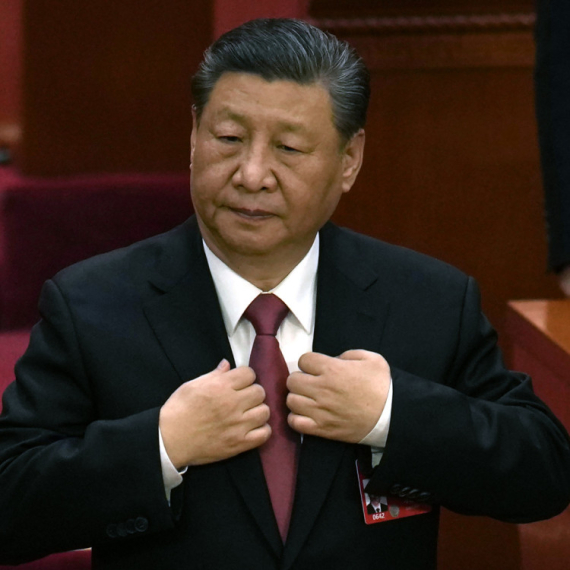
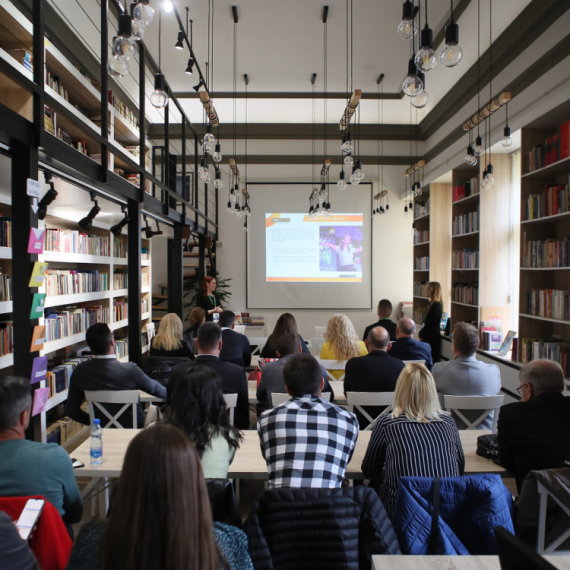
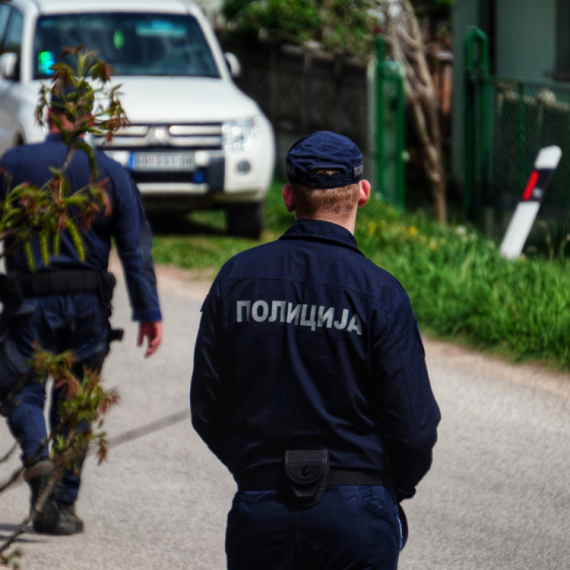

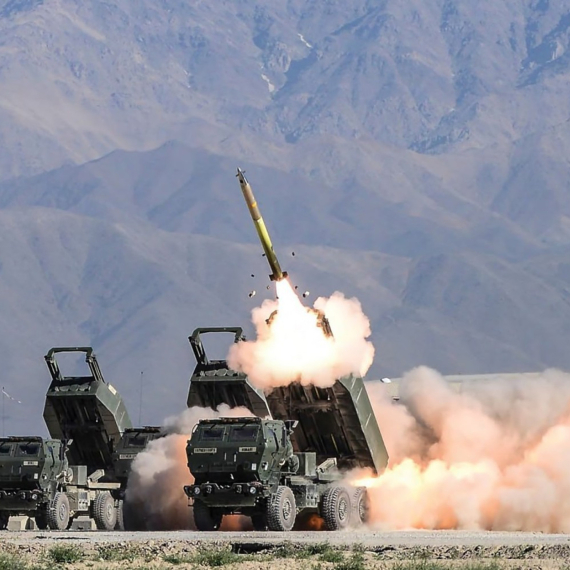
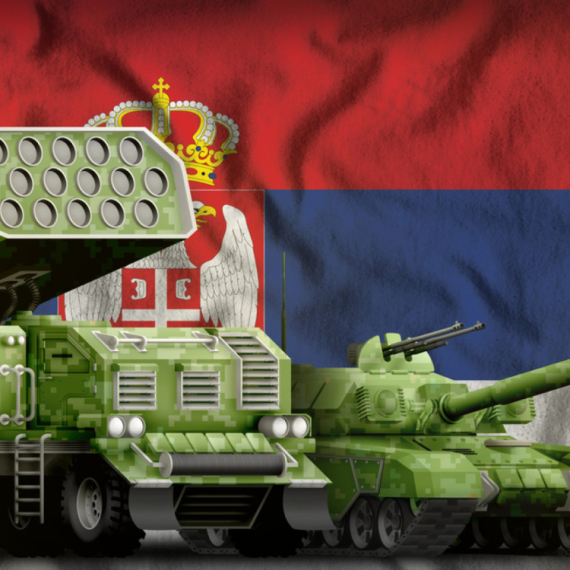


























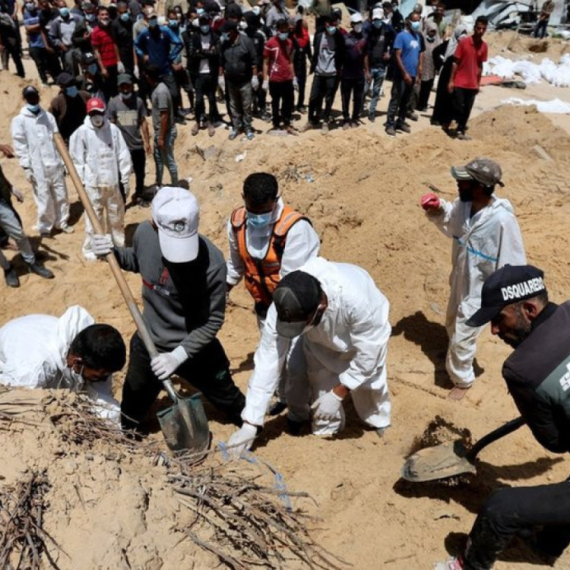




Komentari 24
Pogledaj komentare